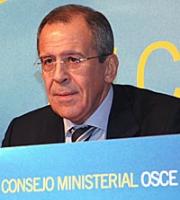The dispute over international monitoring of Russia's recent parliamentary and upcoming presidential elections -- underscored by President Vladimir Putin's denunciations against foreign interference in Russia's parliamentary elections -- must be understood as a broader divergence in how Moscow and other member governments envisage the future of the Organization for Security and Cooperation in Europe (OSCE), the world's largest regional security institution. In particular, Russia and its allies want to rebalance OSCE both functionally and geographically. They seek to reduce the OSCE's democracy promotion efforts while increasing its role in countering transnational security threats like terrorism and in advancing economic development in Eurasia. In contrast, most Western governments are encouraging the OSCE to redouble its efforts to promote democracy and human rights in the former Soviet Union, where these values are seen as gravely threatened. Through supporting multinational election observation teams and other measures, OSCE personnel seek to promote human rights, the rule of law, and democratic values in the member countries. The principles adopted at the OSCE 1990 Copenhagen Conference on the Human Dimension and in other OSCE agreements require member governments to allow universal suffrage, secret voting, and foreign observation of their mandatory periodic and competitive elections. They do not, however, specify how many international voting monitors the OSCE member governments must invite or how long they should stay.
OSCE Split Reflects Clash of Visions Between Moscow, Other Members

